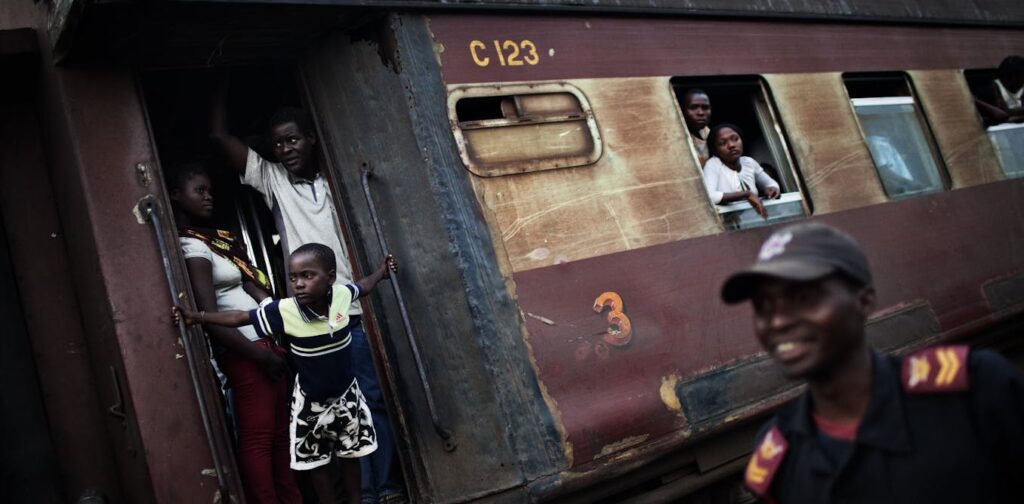Mozambique’s long struggle to build a nation – four novels that tell the story

Mozambique’s long history of nation-building is still unfinished. The country is still pursuing a cohesive national identity, stable institutions, and the economic foundations that would unify diverse groups. This is crucial to foster harmony and political stability.
Nation-building in Mozambique dates back to the last decades of Portuguese colonial rule, in the 1960s. At this time, it was mainly driven by resistance movements and anti-colonial struggles. As nationalist groups emerged, they aimed to unify diverse ethnic groups and overthrow colonial powers. A sense of shared identity was fostered through the fight for independence.
But after independence in 1975, new challenges to nation-building arose. The conflict between the Frelimo party, which triumphed in the national liberation struggle against Portugal, and the armed opposition, Renamo, resulted in a long process of destabilisation. It fragmented an already fragile national unity. Added to this were the challenges of establishing a socialist state.
My current research focuses on how nation-building is represented in fictional literature. Literature can provide nuanced insights into the cultural and social dimensions of the nation-building process. It’s something that historical and political analyses may overlook.
I examined post-independence fiction, spanning from 1992 to 2022. My research delves into a less-explored aspect of Mozambican literature: the role of mobility – how people move around. This includes the use of public transport, travel and migration.
Mobility can reveal how individuals and communities navigate social, economic and cultural landscapes. It can provide insights into the accessibility of resources or the impact of infrastructure on social integration. Movement also serves as a metaphor for broader societal transitions and challenges. It can symbolise freedom, struggle, or progress in nation-building narratives.
My research explores a key theme in these books: Mozambique’s shift from socialism to neoliberal capitalism. It exposes the tension between ideals of equality and the realities of inequality, economic struggle and community breakdown.
It also highlights the ongoing struggle to define Mozambique’s identity, which is being shaped by diverse cultures, colonial history, socialism and globalisation.
Real and symbolic journeys
I selected four critical novels written by Mozambicans. They reflect the changing realities of the southern African country in the decades following independence.
These works are the 1992 Terra Sonâmbula (Sleepwalking Land) and the 2006 O Outro Pé da Sereia (The Mermaid’s Other Foot) by Mia Couto; the 1999 O Comboio de Sal e Açúcar (The Train of Salt and Sugar) by Brazilian-Mozambican Licínio Azevedo; and the 2022 Museu da Revolução (Museum of the Revolution) by João Paulo Borges Coelho.
In each of these novels, public transport is a driving force. It shapes the narrative and represents the complex nation-building process.
For example, in Sleepwalking Land, Couto portrays a burned-out bus during the civil war from 1976 to 1992. This bus becomes a home for two characters, reflecting the breakdown of the state’s modernisation project and the struggle to find stability in the chaos.
Mozambique’s modernisation project aimed to rapidly industrialise and unify the nation under a centralised state. But these efforts were undermined by external forces. For instance, the white political regimes of South Africa and Rhodesia (now Zimbabwe) and the devastating 16-year civil war crippled infrastructure, displaced communities, and deepened economic and social instability.
Many symbols of progress – like buses, roads and schools – were abandoned or repurposed in ways that reflected the country’s struggles to achieve its post-independence goals.
Sleepwalking Land portrays Mozambique’s postcolonial path as one marked by fragmentation and resilience. It shows how ordinary people adapted to and resisted the chaos of war.
Azevedo’s The Train of Salt and Sugar focuses on a military train that transports civilians and soldiers during the civil conflict. The journey is precarious, marked by frequent stops and repairs. This mirrors the nation’s fragmentation and shattered identity. The book also highlights human resilience in the face of adversity and the difficulties in realising the socialist project.
Coelho’s Museum of the Revolution introduces a Toyota Hiace car, a symbol of contemporary mobility. It encapsulates Mozambique’s reliance on global capitalism.
By tracing the car’s journey from Japan to Mozambique, Coelho comments on the international forces that have shaped the country’s economic and social structures. It shows the insertion of Mozambique into the circuits of world capitalism and its international relations.
The vehicles in all the books represent movement or the passage of time. They also embody the obstacles and contradictions of Mozambique’s post-independence trajectory.
According to my reading of the novels, Mozambique’s post-independence journey is marked by two main issues:
Accelerated entry into the neoliberal economy: the country quickly embraced a system focused on free markets, privatisation and reduced government control. This caused economic and social challenges.
Erasure of historical memory: there has been a loss or neglect of the country’s past. This makes it harder to learn from or honour those experiences.
I also argue that these novels highlight the unfair systems and power imbalances in how Mozambique became part of the global capitalist economy.
Global capitalist system
This research brings a fresh perspective to Mozambican literature. Mobility in Mozambique represents a practical need and a metaphor for uneven political and economic progress.
Symbols – like the burned bus, stranded ship and slow train – reflect the country’s struggles with colonialism, civil war and globalisation. This is seen in its unequal society and consumption habits.
Fiction captures the challenges of nation-building amid complex historical and global forces. It reflects these struggles and shapes our understanding of Mozambique’s political, social, and economic issues.



